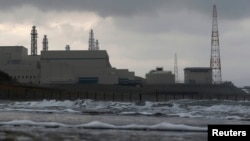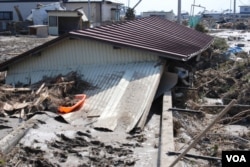Japan's nuclear regulator has given an initial approval for the reactivation of two nuclear reactors that were shut down after the catastrophic Fukushima nuclear plant disaster in 2011.
The Nuclear Regulation Authority voted unanimously Wednesday that the two reactors at the Kashiwazaki-Kariwa nuclear plant, operated by Tokyo Electric Power Company, had met new stricter safety standards imposed after the Fukushima disaster.
The Kashiwazaki-Kariwa plant, located in Niigata prefecture, is one of the world's largest nuclear plants, and the biggest in Japan.
A powerful 9.0 magnitude earthquake in March 2011 triggered a massive tsunami that killed 20,000 people and caused the meltdown of Fukushima's three nuclear reactors in northeastern Japan, making it the world's worst nuclear crisis since the 1986 Chernobyl disaster.
The Fukushima disaster forced the closure of all of Japan's nuclear plants, and there remains widespread public opposition to restarting the plants. But Prime Minister Shinzo Abe has been pushing for a gradual return to nuclear power. TEPCO is aiming to restart the plants to raise the funds needed to compensate hundreds of thousands of residents displaced by the Fukushima accident.
It will likely take several months before TEPCO gets final approval to restart the Kashiwazaki-Kariwa plant.






